Why PCB certifications Matter
PCB certifications are important for several reasons:
-
Quality Assurance: Certifications ensure that the manufacturer adheres to strict quality control processes and standards, minimizing the risk of defects and failures in your PCBs.
-
Regulatory Compliance: Many industries, such as aerospace, automotive, and medical, have specific regulations and standards that PCBs must meet. Certifications prove that the manufacturer is capable of producing PCBs that comply with these requirements.
-
Customer Confidence: Partnering with a certified PCB manufacturer gives you and your customers peace of mind, knowing that your products are built to the highest standards.
Essential PCB Certifications
1. ISO 9001 – Quality Management System
ISO 9001 is an international standard that sets out the requirements for a quality management system (QMS). A PCB manufacturer with ISO 9001 certification demonstrates their commitment to consistently providing products and services that meet customer and regulatory requirements. Key benefits of ISO 9001 include:
- Improved product quality and consistency
- Enhanced customer satisfaction
- Continuous improvement of processes and systems
2. IPC-A-610 – Acceptability of Electronic Assemblies
IPC-A-610 is a widely recognized standard for the acceptability of electronic assemblies, including PCBs. It provides criteria for evaluating the quality and reliability of PCB workmanship, based on visual inspection. IPC-A-610 defines three classes of product acceptability:
| Class | Description | Typical Applications |
|---|---|---|
| 1 | General Electronic Products | Consumer products, some computer and computer peripherals |
| 2 | Dedicated Service Electronic Products | Communications equipment, sophisticated business machines, instruments |
| 3 | High Performance Electronic Products | Aerospace, medical, and other high-reliability applications |
A PCB manufacturer certified to IPC-A-610 ensures that your PCBs meet the appropriate class requirements for your application.
3. IPC-6012 – Qualification and Performance Specification for Rigid Printed Boards
IPC-6012 is a standard that establishes the qualification and performance requirements for rigid printed boards. It covers various aspects of PCB fabrication, including:
- Material requirements
- Dimensional tolerances
- Hole sizes and placement
- Conductor width and spacing
- Surface finishes
A manufacturer certified to IPC-6012 demonstrates their ability to produce PCBs that meet the specified requirements for quality, reliability, and performance.
4. UL 94 – Standard for Safety of Flammability of Plastic Materials
UL 94 is a safety standard that evaluates the flammability of plastic materials used in electronic products, including PCBs. The standard classifies materials based on their ability to resist ignition and flame spread. The most common UL 94 classifications for PCBs are:
| Classification | Description |
|---|---|
| V-0 | Burning stops within 10 seconds after removing the flame, and no flaming drips are allowed |
| V-1 | Burning stops within 30 seconds after removing the flame, and no flaming drips are allowed |
| V-2 | Burning stops within 30 seconds after removing the flame, and flaming drips are allowed |
A PCB manufacturer with UL 94 certification ensures that the materials used in your PCBs meet the appropriate flammability requirements for your application.
5. IATF 16949 – Quality Management System for Automotive Industry
IATF 16949 is a quality management system standard specifically designed for the automotive industry. It builds upon the requirements of ISO 9001 and includes additional requirements specific to automotive applications. A PCB manufacturer with IATF 16949 certification demonstrates their ability to:
- Meet the stringent quality requirements of the automotive industry
- Continuously improve their processes and products
- Manage risks and prevent defects
- Ensure timely delivery and customer satisfaction
If your PCBs are intended for automotive applications, partnering with an IATF 16949 certified manufacturer is essential.
Additional PCB Certifications to Consider
Depending on your specific industry and application, there may be additional PCB certifications to consider when choosing a manufacturing partner. Some examples include:
-
AS9100 – Quality Management System for Aerospace Industry: This standard is based on ISO 9001 and includes additional requirements specific to the aerospace industry.
-
ISO 13485 – Quality Management System for Medical Devices: This standard is based on ISO 9001 and includes additional requirements specific to the design and manufacture of medical devices.
-
MIL-PRF-31032 – Performance Specification for Printed Circuit Board Assemblies: This standard establishes the requirements for PCB assemblies used in military applications.
-
IPC-1791 – Trusted Electronic Designer, Fabricator, and Assembler Requirements: This standard establishes the requirements for ensuring the integrity and security of the PCB supply chain, particularly for sensitive applications such as military and aerospace.

Frequently Asked Questions (FAQ)
-
Q: How can I verify a PCB manufacturer’s certifications?
A: You can request copies of the manufacturer’s certification documents or check their website for information on their certifications. You can also contact the certifying organization to verify the validity of the certificates. -
Q: Can a PCB manufacturer have multiple certifications?
A: Yes, a PCB manufacturer can hold multiple certifications, depending on the industries they serve and the types of products they manufacture. -
Q: Are PCB certifications mandatory?
A: While not all PCB certifications are mandatory, many industries have specific requirements that PCBs must meet. Certifications demonstrate a manufacturer’s ability to meet these requirements and provide high-quality products. -
Q: How often do PCB manufacturers need to renew their certifications?
A: The frequency of certification renewal varies depending on the specific standard and certifying organization. Typically, certifications are valid for a few years before requiring renewal. -
Q: What should I do if a PCB manufacturer does not have the required certifications?
A: If a PCB manufacturer does not have the certifications required for your industry or application, it’s best to look for an alternative manufacturer that does. Partnering with a certified manufacturer ensures that your PCBs meet the necessary quality, reliability, and compliance standards.
Conclusion
Choosing a PCB manufacturing partner with the appropriate certifications is essential for ensuring the quality, reliability, and compliance of your products. ISO 9001, IPC-A-610, IPC-6012, UL 94, and IATF 16949 are among the most critical PCB certifications to look for, depending on your industry and application. By partnering with a certified manufacturer, you can have confidence in the performance and safety of your PCBs, which ultimately contributes to the success of your products in the market.
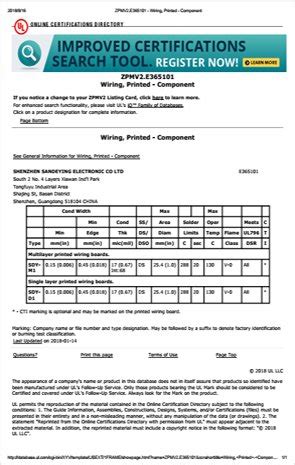

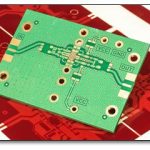
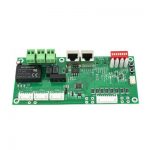
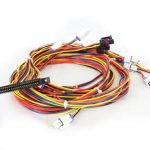
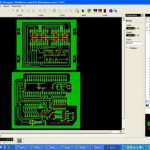
Leave a Reply